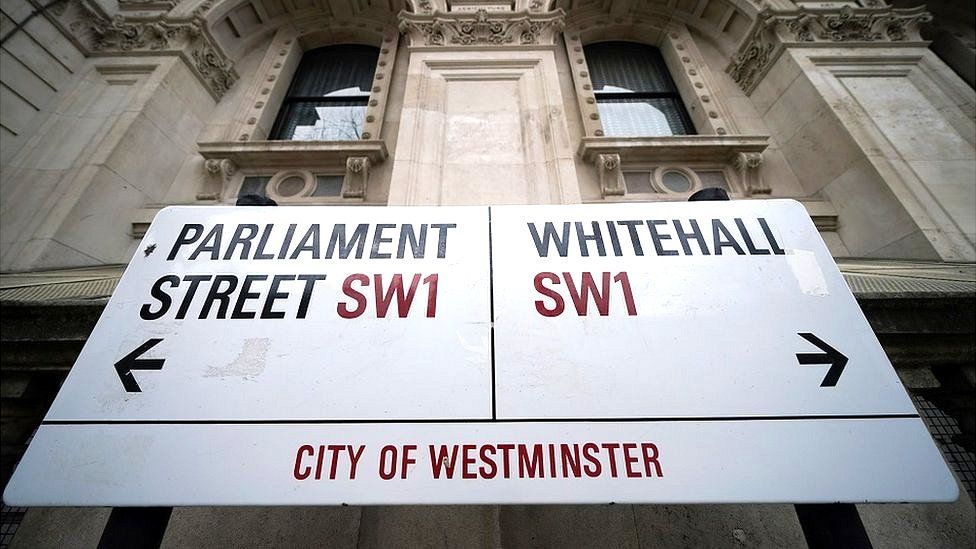ARTICLE AD BOX
 Image source, PA Media
Image source, PA Media
Change of direction?: Lord Francis Maude raises the prospect of civil servants being able to have more open political affiliations
A Tory peer who is leading a government review of how the civil service operates has called for a more "robust culture" in Whitehall.
It comes after the resignation of the former Justice Secretary and Deputy Prime Minister Dominic Raab over bullying claims.
Mr Raab stood down on Friday after an inquiry found he was "intimidating" and "aggressive" towards officials.
Mr Raab said the findings had set "a very dangerous precedent".
Writing in the Observer, Lord Francis Maude, a former Cabinet Office minister, raised the prospect of civil servants being able to have more open political affiliations.
Lord Maude said Mr Raab's resignation had raised important issues.
He said ministers have limited authority to put in place officials of their choice despite relying on them and being accountable for what they do.
He suggested that ministers could be given more say about appointments while preserving impartiality.
"The UK is now an outlier, and a better balance needs to be struck," he said.
He said that other governments with similar systems, such as Australia, New Zealand and Canada, "manage it better than us".
He warned that without change, "there will be more cases like Raab's when frustrations boil over".
"We need a much more robust culture, with less groupthink, more rugged disagreement, and the confidence to both offer challenge and to accept it," he said.
"We also need to be more robust and less mealy-mouthed about 'politicisation'".
He said that other systems deal with this better. "In France, permanent civil servants often have overt political affiliations, and it causes few problems," he said.
Image source, Getty Images
Image caption,Lord Maude said that without change there would be more cases like that of Mr Raab
"Without a much closer alignment between accountability and authority, we will see tensions build and relationships fracture.
"Our system can be made to work but it needs change - difficult and sustained change. And it needs to start soon."
After his resignation, Mr Raab hit out at what he described as some "activist" civil servants, saying such a low bar for bullying would have a chilling effect on government.
He said there was a risk "a very small minority" of officials "with a passive aggressive culture" were trying to block reforms they did not like.
Lord McDonald, who worked as Mr Raab's permanent secretary in the Foreign Office, said he dismissed repeated warnings about his behaviour.
Prime Minister Rishi Sunak said he wanted to learn from the complaints process highlighted in the inquiry, so similar matters were handled better in the future.
The inquiry by senior lawyer Adam Tolley KC looked at eight formal complaints about Mr Raab's behaviour during his previous stints as justice secretary, foreign secretary and Brexit secretary.
His report concluded Mr Raab's conduct involved "an abuse or misuse of power", and that he "acted in a manner which was intimidating" and "persistently aggressive" towards officials.

 1 year ago
24
1 year ago
24








 English (US)
English (US)